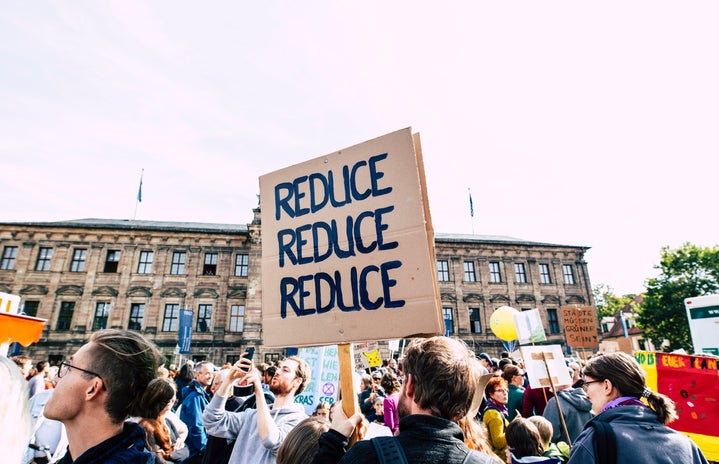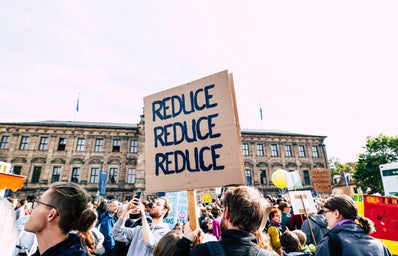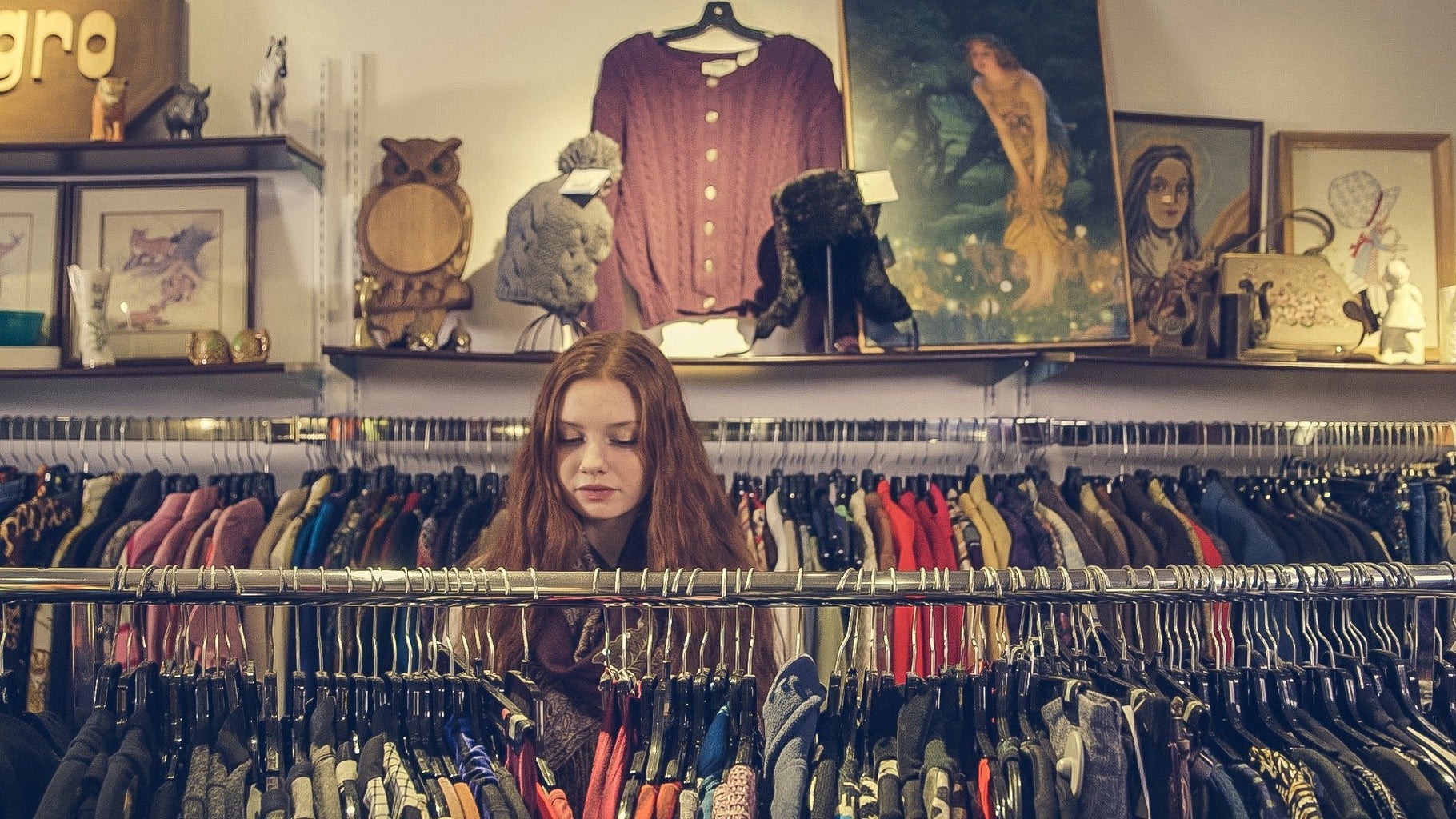It’s no mystery that our planet isn’t headed in the healthiest direction. Evidence of climate change surrounds us, both on the news and in person every day, whether we notice it or not. Huge policy decisions are being made to try to promote a greener future and companies are making bold decisions to combat climate change.
While it’s important that these institutional changes are made, there is always more that can be done. Specifically, I’d like to share the five easiest ways to incorporate zero-waste habits into your life. First, let’s talk a little bit about how zero-waste is related to climate change.
For starters, we live in a capitalist society filled with consumerism. There’s no denying that. Everywhere from fast fashion, to buying coffee from a plastic cup each morning, the average American throws away 4.4 pounds of trash every day.
The increased use of disposable items causes the need for a place to put said items. Thus, there is deforestation, increased land use, and millions of items that will sit in landfills for the rest of time.
Here’s where you, the consumer, come in. These next five steps are easy ways to make small differences.
goodbye makeup wipes, hello Reusable Cotton pads
Reusable cotton pads are a great way to not only reduce waste, but also be kinder to your skin! I’ve made the switch to these reusable cotton pads and it’s safe to say I’m never going back. The cotton rounds work so well with micellar water to keep my face looking happy and healthy.
Simply apply your micellar water of choice to one of these rounds, clean your face, then wash the rounds each time you do laundry.
Plastic bags who? Reusable Produce bags, yes please
It’s time to ditch plastic grocery bags and start using reusable produce bags. I like to keep these reusable produce bags inside my large grocery bag so I never forget to bring them.
These can also be thrown into the washer and dryer which makes them super convenient. Single-use produce bags are not biodegradable and will likely end up in the ocean. By making this easy switch, you will be helping the planet.
Ditch paper towels for reusable rags
Paper towels are unquestionably a kitchen staple. While they are certainly convenient, living with my parents again has made me realize how quickly my roommates and I go through one roll of paper towels. There are certainly more sustainable practices to slow the rate of paper towel depletion.
The easiest way is to switch to a rag. In my apartment, I’ve been keeping a rag under the sink that I use to clean up anything I would have used a paper towel for. I hang this rag up so it can dry and wash it every few days.
Find any old dish towel and keep it in an accessible spot in your kitchen. Alternatively, you can cut up old t-shirts to make reusable rags. There is a lot of room to be creative to find alternatives to paper towels. It will also save you some serious cash!
cost efficient bar soap? Tell me more
The typical loofah and body wash purchase is costly, doesn’t last that long, and can be wasteful. Loofahs need to be switched relatively frequently which doesn’t make them especially eco-friendly.
Bar soap comes packaged in a recyclable wrapper. We love to see it! Not to mention, unscented bar soap is great for your skin. I don’t typically use it on my face, but I’ve found my skin is happiest when I’m using bar soap.
If you’re wondering how you would exfoliate without a loofah, simply bring a facial towel in the shower. It works as a great exfoliator and can be reused.
Second hand fashion? Iconic
In a time where fast fashion is at peak popularity, people no longer find the need to buy secondhand since prices of new items are extremely cheap. It might be hard to say goodbye to Shein or Forever 21, but the fast fashion industry is doing some serious damage to the environment. Let’s consider some other options.
Thrift stores are everywhere and often have unique pieces. Additionally, you can thrift online at multiple websites. For an abundance of items, Thredup is your best bet. If you want a more specific piece, depop or Poshmark are great places to start.
Incorporating these habits into your routine is a great way to start helping the environment. Beginning an imperfect zero-waste lifestyle takes time, so the tips listed above are great places to start.
As zero-waste chef, Anne Marie Bonneau, said, “We don’t need a handful of people doing zero-waste perfectly. We need millions of people doing it imperfectly”. While I am nowhere near being zero-waste, this quote helps me remember that it’s about practice more than perfection. Every little step helps in one way or another.





